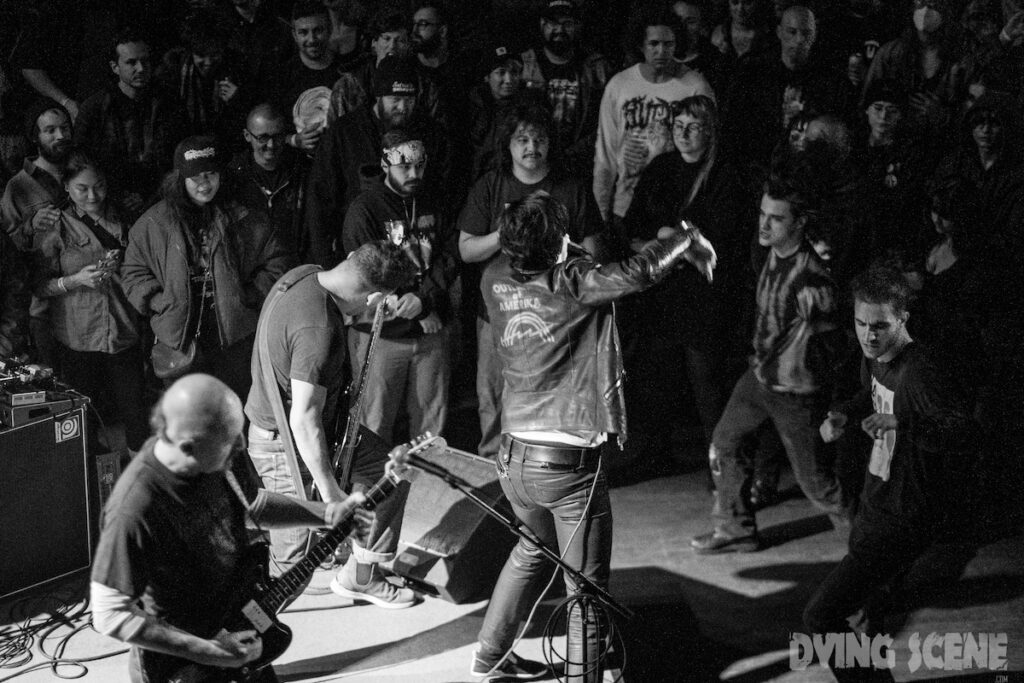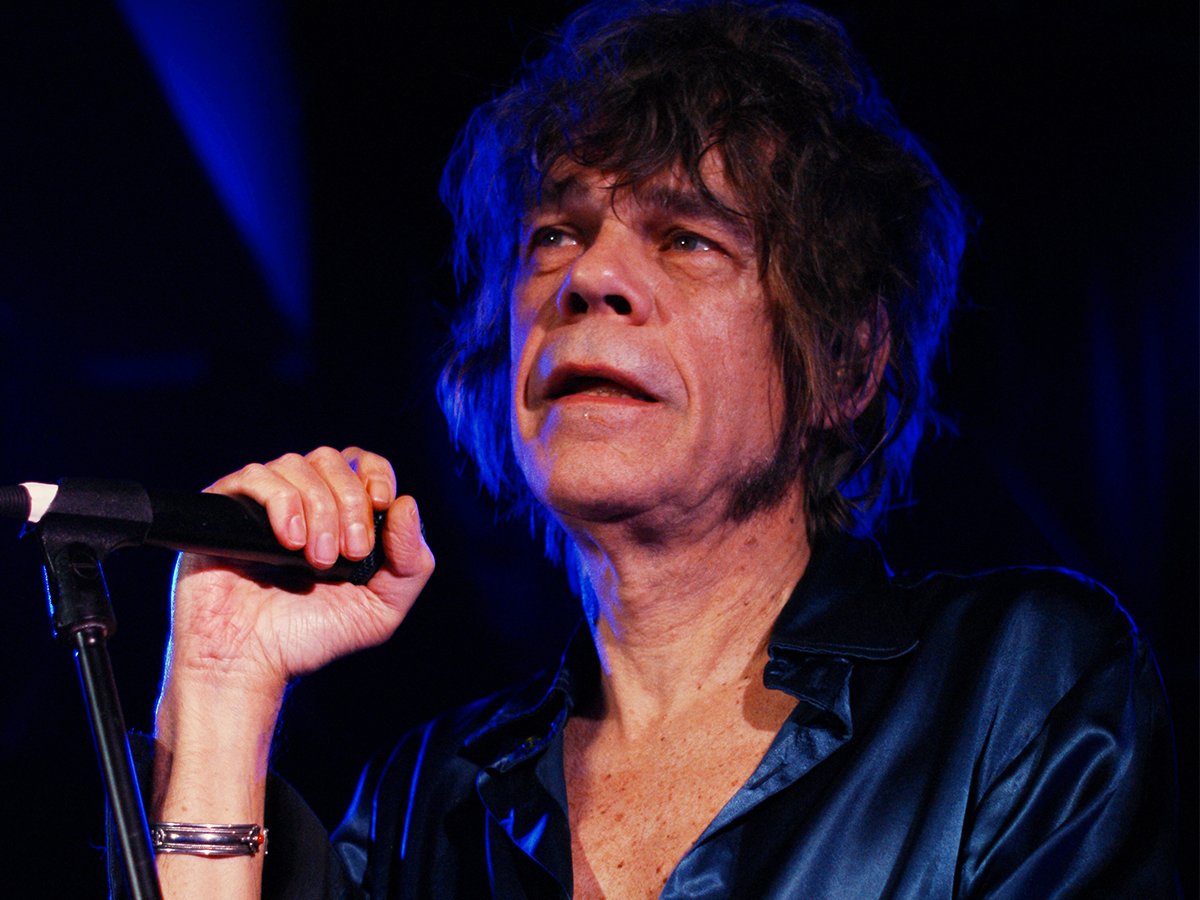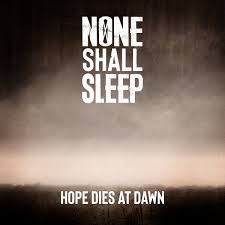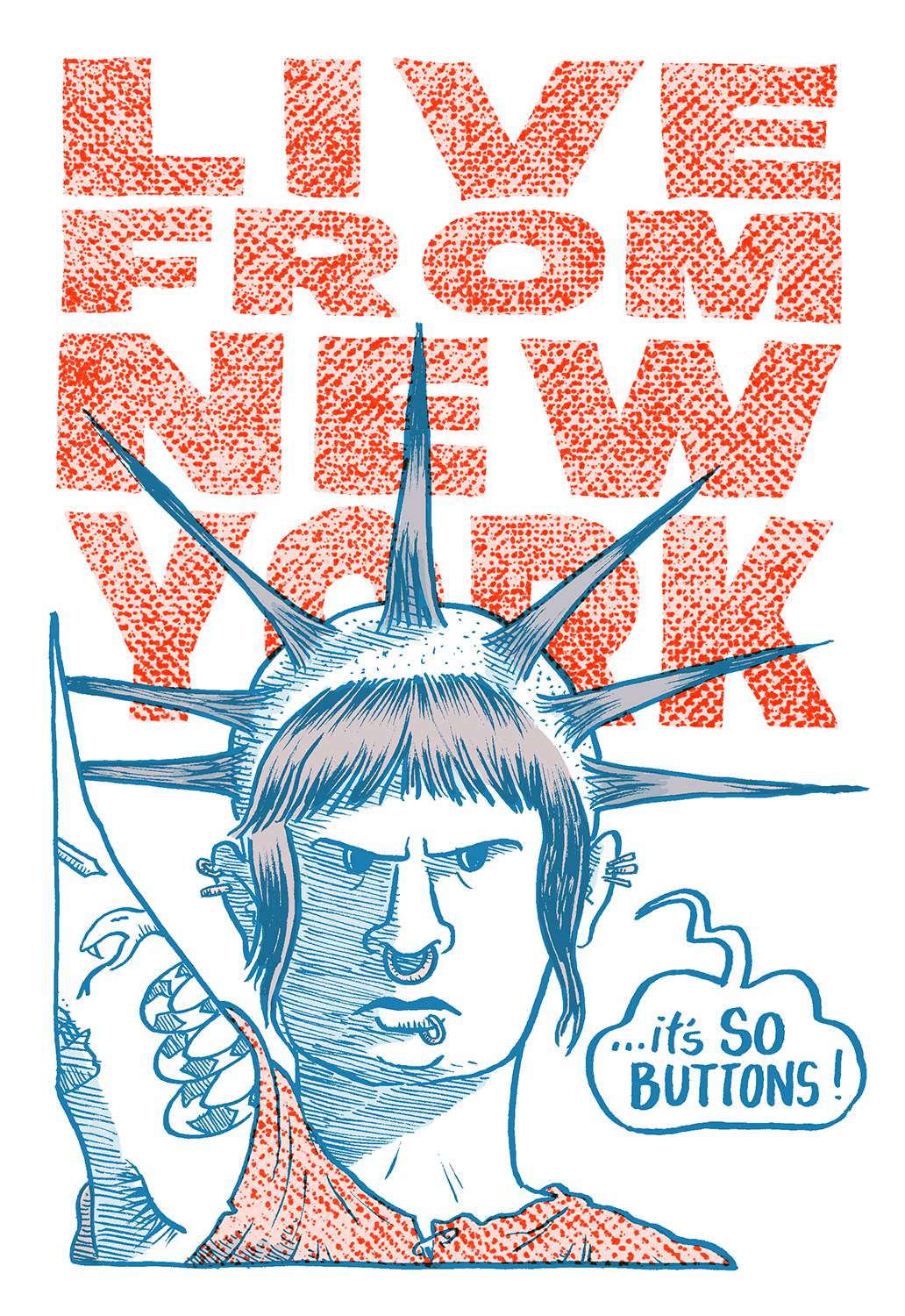Dying Scene interviewed Brian Amalfitano of Deaf Club before their show at Thalia Hall in Chicago. Other bands on the bill included Meth, See You Next Tuesday, Usurp Synapse, and DJ Speedsick.

Dying Scene: Tell me about yourself and Deaf Club.
Brian Amalfitano: My name is Brian Amalfitano. It’s very Italian. I’m the guitarist.
This interview has been edited for length and clarity.
BA: I started this band with Justin Pearson. Originally, we played in our former bands. He used to be in Retox and I toured with him. We played three or four shows, and I was a huge fan of his projects, The Locust in particular. Six months later, I was in San Diego, which is stomping grounds for Three One G Records, Justin, and everybody, we saw a band called Metz from Canada, and he was like, “Look, what are you doing? And “I’ve been on hiatus for a little bit.” So, he said, “Hey, let’s start a project.” And I thought he was joking. He had a lot of projects going on and I thought, well, this guy is Justin Pearson, what’s he going to do with me? But essentially, we met again, and he started sending me drummers. He was touring with Dead Cross at that time. And so, Jon Syverson from the band Daughters at the time had recommended Scott Osmond, who is our drummer, and he said, yeah, why don’t you try jamming out with this guy? And that kind of became the nucleus of the band. Scott and I sort of wrote all the riffs and guitars and drums together. So, after we sort of wrote all that, we sent it to Justin, he put vocals on everything, and that became our first demo of five songs. I think it was six minutes. It was quick, and we’ve been sort of fleshing it out from there. That’s how Deaf Club started.
DS: So, this is my first time seeing Deaf Club. What can you tell someone like me about your band?
BA: Well, it’s a little bit of…Justin had this one lyric, “highbrow caveman,” so it’s a little bit neanderthally, very abrasive, but a little bit highbrow. We’re trying to be a little bit smarter about what we do. It’s chaos, but it’s controlled chaos. We try to turn on a dime and it’s just very fast, but also very weird. We’ve always been influenced by the weirder aspects of music, so we use a lot of pedals and stuff like that. Obviously, he did that in The Locust, but he’s not playing anything. So, when we started this, I asked him if I could play pedals in this band and he said, “yeah, absolutely!” The weirder the better. So, I think it’s a little bit weird, but aggressive in a positive way. We’re not trying to scare people. We don’t want to be a hardcore band that’s a beatdown band, a macho band. Some people obviously throw elbows and kicks in the pit, but we’re not trying to send anyone to the dentist the next day. We’re trying to be nice and sort of be a community band.

“Some people obviously throw elbows and kicks in the pit, but we’re not trying to send anyone to the dentist the next day. We’re trying to be nice and sort of be a community band”.
– Brian Amalfitano
DS: Tell me about the bands you are touring with today.
BA: Meth, See You Next Tuesday, and Usurp Synapse. Seb Alvarez of Meth put together the tour. He’s friends with our drummer, Scott, for many years. Scott was in Meth for a little bit. He was playing drums with them; he plays drums with Glassing. So, he kind of knew Seb already, and Seb wanted us to come out here to play. So, between Scott and Seb, they just kind of emailed everybody and we’re like, let’s do this. It’s more of a DIY network sort of thing. We do have booking agents and things like that, but sometimes we just reach out to our friends, and we say, hey, let’s do this, and whatever route we could do. So, just the camaraderie of bands and communities in little pockets of America is kind of cool.
DS: How’s the tour going?
BA: It is fresh. It’s the second day. We’ve only had one show. The first show we blew out a tire on the van, which is kind of what happens, and we deal with what comes to us, so it’s all good now. We were on tour with Converge I think the first day out of California or out of Los Angeles we also blew a tire. And then we also blew three hoses on that entire tour, which was kind of wild. Our tour has van has 420,000 miles on it, so it’s been beat to shreds. The Locust used it. Retox used it. A bunch of bands used it, it’s a historical piece. Everyone’s great people, so that makes it better.
DS: So, it’s early in the year. What does 2024 look like for you?
BA: Personally, I think it’s great for Deaf Club. We have a couple tours coming up including a European tour. I’m not quite sure if they’re panning out and I don’t want to say anything before they’re confirmed. We’ve been writing material. I think we have a good amount almost for a full length, so hopefully a full length. We have some stuff for a split that we’re doing. We have the tour with Fuck Money, which are our label mates on Three One G. They’re also from Austin, Texas. They’re a phenomenal band. Austin’s kind of like our third home. It’s like LA, San Diego, and Austin. They treat us well and all the bands there are great. It’s looking good this year.
DS: What accomplishments do you see yourself achieving in the next five years as a band?
BA: Honestly, the hardest part of a band is just surviving the money situation of anything. If anyone cares enough in five years for us to be writing what we’re doing, that’d be great. We’re always trying to push the envelope and create new things, sort of carve out our sound a little bit better. I think even now for the next year, we’ve been writing songs that are a little bit lengthier. Our first album maybe had a song that was like 48 seconds. So, now it’s like, oh, it’s the two-minute mark and that seems reasonable. So, we’re writing better songs. Yeah, so for the next five years I hope we keep doing that and progressing as a band.
DS: Can you tell me a little bit about Three One G Records?
BA: Three One G is Justin’s label. It’s been around 25 years now. I remember, probably about 25 years ago, I started listening to Three One G and listening to the Locust and Gold Standard Labs and other labels from around that time from San Diego and sort of being in awe of the DIY aspect of it, the community aspect of it. And they were not tough guy hardcore. They were sort of skinny dudes doing things and getting essentially beat up by being what people would call them, effeminate, weird, nerdy or whatever. So, it gave me hope, it’s like punk can be weird. Punk cannot be a clique. San Diego created its own DIY community. It didn’t have to go to LA. It didn’t have to be a part of something. So, it kind of helped me think of those things where you could be an outlier even in an outlier subculture like punk and still find a little niche for yourself. And Three One G sort of has always done that. I think they’ve released a lot of great records, a lot of seminal records of just bands that were a little bit askew, a little bit weirder than your normal punk. And yeah, I think Justin has good taste in that regard, trying to find new things.
DS: Tell me about how you all keep the momentum going, especially with all your other projects.
BA: I think it’s just, it’s a lifer thing. It’s something that you don’t really think about. I own a record store. During the pandemic, we couldn’t tour. So, we were like, what do we do? And we opened a record store like, well, music is the one thing that keeps us all going and saves us and lets us have creative outlets and positive outlets. I think my first conversation with Justin in San Diego about creating Deaf Club was, I’m a big Sonic Youth guy and I was like, I’d rather be an underground band for 25 years or 30 years rather than this huge band that just breaks up after a couple of years. I’d rather have the longevity of creating good solid things and keeping it going. I think because we are all dedicated to that concept it helps us go, okay, yeah, maybe we don’t get all the love or the accolades or whatever for a couple years, but eventually someone might be listening, and you want to help that one person. We do get some people that say, “listening to you guys made my year,” or “saved me” helped us. And that’s some positive reinforcement that you just can’t buy it. So, it’s cool.
DS: You mentioned you have a record store. Tell me about it.
BA: We started it a year into the pandemic. It’s called Spinning Plate Records and we do a little bit of everything. I’m from Argentina, so the demographic is very much Latino. We started bringing in Rock En Espanõl, hip hop, Three One G records, music that I grew up listening to, and things that I, through the DIY community, was like, Hey, I’m going to sell my friends’ records. I started just creating a community based around that. That kind of transferred into Spinning Plate Records. It’s been cool. It’s been a good three years.
DS: So, tell me about your favorite performance as a band.
BA: One of my favorite performances we’ve played was at Elysium in Austin, Texas. We played at Oblivion Access Fest, which was a DIY and the first year of the festival. It was this young kid had thrown it, a friend of Scott’s. So, they invited us to play, and we played with Metz, which is again how Deaf Club sort of started, but I love Metz and so we were kind of honored to play with them. Three One G put out a seven-inch for them and that was just a good show and we did an after party. We’ve done SXSW where we played four shows in one day. But Metz for sure, that was a great show at Oblivion Access. I think Roskilde Festival was maybe our top show ever. That was in Denmark with a thousand-plus people. It was a whole festival. It was just phenomenal to get out of the States and be treated like…these people are like, oh, we just want to have you here. It was cool.
DS: So, are there any musicians who inspire you? Who would you like to collaborate with?
BA: I’m was huge Nirvana fan. Kurt Cobain is the reason that I play. I was eight or nine years old when he passed away. I bought Bleach and it said, this is Nirvana’s first record. So, I thought this must be the good one and it was super heavy. Then I started playing guitar soon after and we did a Nirvana cover for this band and a live set. If I could collaborate with anyone, Kurt Cobain. I know the other guys; we have different tastes.
DS: So, what song did you cover?
BA: “Tourettes.” So, we were on tour, and I think we’re like, oh, let’s do this cover song. We figured, I mean it has lyrics, but it’s just kind of yelling them. And so, we’re like, well, Justin, you don’t have to learn the lyrics, so you could just yell this rhythm and we could play it. At the time, the fill-in bass player, Collin Smith, played in a band called Se Vende, and was on tour with us, he’s a big Nirvana guy, too. so, we bonded over that. We’re like, let’s do it. Justin kind of makes fun of me. He’s good.
DS: What four bands should we be listening to?
BA: Fuck Money for sure. Fuck Money is a phenomenal band from Austin, Texas. I think Snooper is great. Meth is a phenomenal band. There’s Scott’s other band, Glassing. Just so many of our friends’ bands are doing such cool things. Sometimes it’s cool to see your own band members in those bands. Then you see what they could do or how creative they are in different aspects. You’re like, oh, I didn’t know that you could do that. So, Fuck Money, Meth, Glassing, and Snooper are really good bands.
DS: What bands are you listening to this week?
BA: I love Gilla Band, they’re Irish noise kind of post-punk weird. I love Metz. I love Tropical Fuck Storm, Australian band they’re more rock, but a little bit skewed and weird. I don’t necessarily listen to a lot of hardcore. I feel like you just start getting those ideas and those riffs. So, I like chiller bands. We listen to a lot of chill stuff in the band, even a lot of indie dream pop. Scott likes a lot of chill stuff, even though he’s a brutal drummer. I love Amyl and the Sniffers, King Gizzard & The Lizard Wizard, The Murder Capital, and Crows. Yeah, it’s a little bit everywhere for me. There are so many good bands.
DS: What advice do you have for musicians and others in the music industry?
BA: I think you must do what you love. It’s a risk and rewarding, if you’re just looking to make money or just looking to do these things, you’re not going to do it. We all have our jobs. Justin has been running a record label for a long time, Jason works for Fender, and I have a record store. We get to go out on tour and do what we love. I retired young and started going on tour playing in cover bands and played in friends’ bands. If you’re a lifer and you really love it, maybe something will happen.
DS: We have a mutual friend, Martin Atkins. Tell me about your experience meeting him and visiting his museum, the Museum of Post Punk & Industrial Music.
BA: First, I’m amazed at the wit and the sharpness that Martin Atkins has. The number of stories and jokes that he has. His quick sense of humor and his dry wit and the way that he delivers things was just mesmerizing. It’s almost like he’s a comedian. He could do standup if he wanted to. But then the collection that he has. The things with PIL and John Lydon. Gabe Serbian’s Locust uniform. And just seeing that, because I knew Gabe and I went to a lot of Locust shows and I helped them, and it felt really at home as well. This person cares about these things and it’s nice to see. And so yeah, just Nine Inch Nails and Ministry, all these historical things. People not only visit his museum, but they also send him things. That just reinforces that even a person of this level can be part of this DIY community. So, last time we stayed for two days at the museum. He allows bands to stay there as well, which to me is crazy. If you allow, I mean a punk rock band…I’m like, wait, you’re going to just allow a bunch of punk rockers around all these priceless artifacts? I’m like, what if they pocket something? So, it was kind of amazing that he just allowed us to stay there. He just gave us a key and was very welcoming to us. We went downstairs and listened to some secret tracks of the Johnny Lydon singing over The Beatles and this and that. I was like, this is blowing my mind. I love his merchandise, the Pigface stuff. I bought this “Eat Shit You Fucking Redneck” shirt and I wore that in Texas. So, yeah, just the sweetest guy. This reinforces the belief that even weirdos are nice, goth industrial people…that people think are scary, they wear all black or whatever. And it really helps you mentally to go somewhere like that. Sometimes you just stay in the flea bag hotel, and we have and there’s bugs or something that get me, and you’re like, no, no, no, we’re leaving. But just for someone to offer that, it is very welcoming, open. It’s nice. We couldn’t stay this time. We had planned it, but he was out of town, and he had to do an open house and all these things.
DS: Yeah, we’ve been to several events there and enjoyed it.
BA: There’s always things that you miss. It’s like going shopping at an antique mall and you’re just looking at everything and what am I going to see? And then he’s like, look at that little ticket stub. Look at that little thing. He has so many stories about that little thing and that little thing and that little thing. How do you remember that? Especially back in those days, I imagine the partying and the drinking or whatever. I’m like, I can’t remember what happened last week and I’m not even doing anything. There’s too much mayhem now.
DS: You’ve got some pretty incredible tattoos there, especially that Daniel Johnson one. Obviously, these things are important to you, so tell me about that and what they mean.
BA: So, on my upper right arm, I have all my novelists and stuff. So, I have Albert Camus, Tolkien, and George Orwell. I have the K Records because Kurt Cobain had a K Records tattoo but also K Records is a label from Olympia, Washington. But my twin brother, Sergio, and I got this for our birthday just for Kurt, and it’s the only one that I have on my left arm. But these are all musicians, Iggy Pop, Radiohead, Sub Pop, which was the first label that I really loved. Sub Pop and Three One G were sort of the things like grunge and punk and weirdo punk. And yeah, it got me into Nirvana, Soundgarden, and got me into playing.

“Daniel Johnson’s not the best singer, but because he does it and he loves it earnestly, he gained a following”.
– Brian Amalfitano
BA: Daniel personally for me, I love him as far as, he had a lot of mental health issues. For him to sort of overcome them enough to write love songs and to write by himself on a little pump organ piano. And his guitar and sort of show you in a different context…maybe Bob Dylan‘s not the best singer, or John Lennon‘s not the best singer or Daniel Johnson’s not the best singer, but because he does it and he loves it earnestly, he gained a following. He also sat there and dubbed his own cassettes, drew his own drawings, and handed them out to people. If that’s not one of those penultimate DIY ethics, maybe even not knowing that that’s part of DIY and punk rock, just having that mindset of I just need to get this out of my brain and I need to hand it to people to see if they relate. I doubt he ever thought he was going to be famous or anything. I got to see him before he passed. And even just listening to his voice and still having that same refrain, that same sort of childlike voice. And even though he kind of would shake in the middle of the songs when he was singing, he was very calm. His body was very calm. I thought that that sort of spoke to the power of music. And so Lo-fi, DIY, Daniel, maybe it’s not what a hardcore kid would do or not but it’s very much wearing your heart on your sleeve. A little bit of innocence is necessary in music.
DS: The great Wayne Kramer recently passed away. I know you’re a fan. You’ve spoken about losing Kurt Cobain and Daniel Johnston. How do we survive losing our heroes?
BA: I think for me personally, I grew up an atheist. My grandfather gave me a lot of books on atheism growing up and sort of the reverence of life to realize that people are human and frail and maybe they’re not going to be here the same way that none of us are going to be here, but to enjoy them, to enjoy their influence. Some of these books, music, film, they stay with us for a very long time, and they stay here longer than us. Nick Cave, I think said it, “I’m creating these things that are going to outlive me and hopefully will influence someone and help them live a better life.” And I think Wayne particularly as well, I got to see him recently when he did the shows with Kim Thayil (Soundgarden) and the MC5 stuff, the reunions, for him to have lost all his band members prior and for him to have been in jail but to still come out and do Jail Guitar Doors and to help people come out of that, just giving back to the community, I think he did a lot more than people give credit. Sure. Kick Out The Jams. But these heroes, especially because I was very young when Kurt died, it was an impressionable sort of thing. I remember them playing, I was in Argentina at the time. I was living there with my family. They’re from Argentina, and they played unplugged in New York nonstop on MTV Three. It was, and it sort of made me fall in love with the soft side of it as well, the melodic side of things, and to sort of listen to these words and listen to what these people care about and your heroes are sometimes flawed but they also teach you about beautiful things. If you could take that with you, then I think they’ve done their job. And that’s really all we could do for each other as far as humans.
DS: Do you have any other thoughts for the Dying Scene’s readers?
BA: Yeah. Just do what you love. Be as weird as you are. Just be yourself. It seems hard when you’re young because there are scenes. Everyone says punk is just for the outsiders. And sometimes within punk, you’re like, I’m a crusty, I’m hardcore. You can’t be part of our clique because you don’t dress a certain way. I think that the youth seem to be open to not only gender fluid, but genre fluid and sort of just being fluid in general. Just being able to go from hip hop to punk rock to this. Hopefully, being less judgmental of each other but also being less judgmental on yourself. There’s a lot of growing up in your youth where you just doubt yourself and you could cause harm to yourself. We all find something. It’ll be good the longer you stay in the game, it’ll be good for you.
DS: Thank you.
BA: Yeah. Absolutely.




